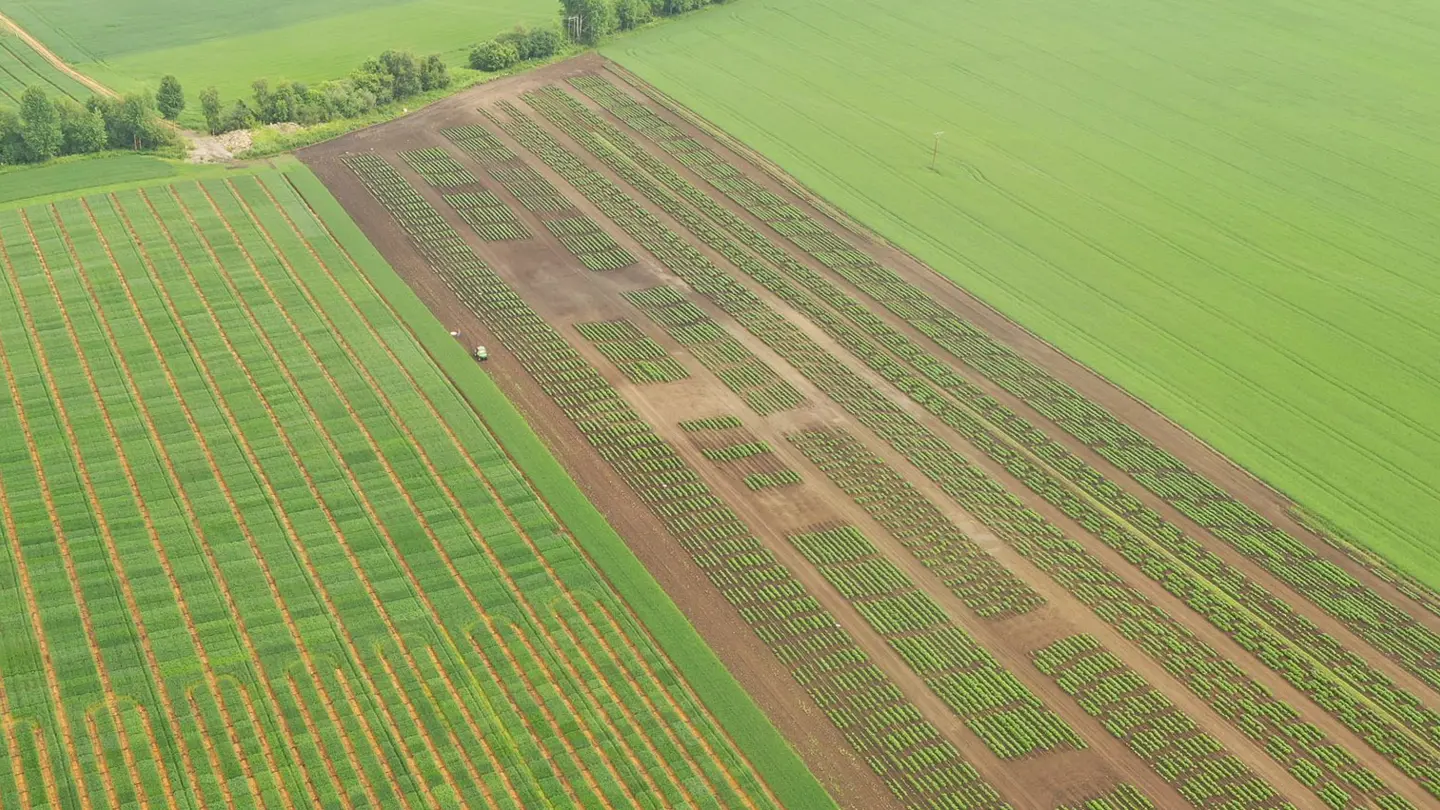
SustainPotato II
- Home
- Projects
- SustainPotato II
- About the project

Diseases are the biggest challenge in potato cultivation and due to climate change the problems will probably increase. SustainPotato brings together three plant breeding programs for potatoes in Sweden, Norway and Denmark together with researchers from these countries and Estonia. The main focus of the project is to lay the foundation for the development of more robust potato varieties that are better adapted to cope with several skin blemish diseases and late blight (Phytophthora infestans). The latter is a mold disease that has been a major problem for agriculture ever since the 1840s. Today in Sweden and Norway, 20 to 30 percent of all pesticides in agriculture is used to control late blight.
In order to be able to develop better potato varieties in the future, over 300 potato varieties are included in the project, which is one of four projects active during 2024-2026 in the Nordic Public-Private Partnership (PPP) for Pre-breeding.
All potato varieties will be studied based on genotype (the exact genetic traits of an individual, most often studied through DNA samples) and phenotype (the observable traits and characteristics such as plant size and leaf color). Using DNA markers, the potatoes are mapped to provide more information on the genetic basis of the Nordic potato varieties. In the project, field trials will also be carried out in the three Nordic countries to study observable characteristics in plants and tubers. This information is shared between the project participants. In the cultivation trials, new technology such as drone photography in combination with image analysis programs will be used, so-called high-throughput phenotyping (HTP).

Projektpartners:
Graminor AS (NO)
Danespo (DK)
Swedish University of Agricultural Sciences, SLU (SE)
NIBIO (NO)
NordGen (the Nordic countries)
Centre of Estonian Rural Research and Knowledge, METK (EE)